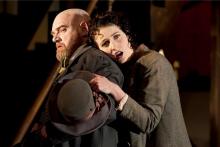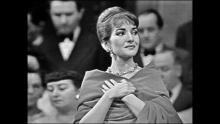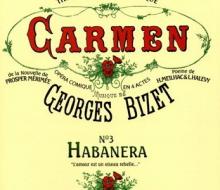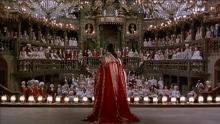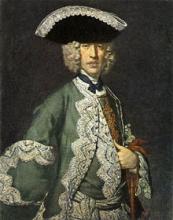
famous arias
Instrumental version of Bellini's famous aria from the opera "Norma": Casta diva.
The performance from Maria Callas is much probably the most famous - and notable - among the thousands of recorded performances available.
The libretto is from Felice Romani, and here are the original italian lyrics for the aria:
Casta Diva che inargenti
Queste sacre antiche piante,
A noi volgi il bel sembiante
Senza nube e senza vel.
Tempra o Diva,
Tempra tu de' cori ardenti,
Tempra ancor lo zelo audace,
Spargi in terra quella pace
Che regnar... » ... sing it!
Instrumental version of the famous aria "L'amour est un oiseau rebelle", also known as the "Habanera" from opera "Carmen" by Georges Bizet.
Original French text:
L'amour est un oiseau rebelle
Que nul ne peut apprivoiser,
Et c'est bien en vain qu'on l'appelle,
S'il lui convient de refuser.
Rien n'y fait, menace ou prière;
L'un parle bien, l'autre se tait,
Et c'est l'autre que je préfère;
Il n'a rien dit mais il me plaît.
Refrain: (L'amour est un oiseau rebelle) etc.
L'amour est l'enfant de Bohême,
Il n'a jamais, jama... » ... sing it!
"La donna è mobile" (The woman is fickle) is the Duke of Mantua's canzone from the beginning of act 3 of Giuseppe Verdi's opera Rigoletto (1851).
The canzone is famous as a showcase for tenors. Raffaele Mirate's performance of the bravura aria at the opera's 1851 premiere was hailed as the highlight of the evening.
Before the opera's first public performance (in Venice), the song was rehearsed under tight secrecy: a necessary precaution, as "La donna è mobile" proved to be incredibly catchy, and soon after the song's first public performance, every gondolier in Venice was sing... » ... sing it!
Lascia ch'io pianga is a famous aria by George Frideric Handel included in the opera "Rinaldo".
The melody wasn't originally written for this opera though: Handel used it first as an instrumental piece in 1705 for the opera Almira, and later re-used it for an oratorio aria, "Il trionfo del tempo e del disinganno", 2 years later ("Lascia la spina, cogli la rosa" was the first verse).
After 4 years, in 1711, Handel changed the lyrics and recycled this theme once again for the "Rinaldo": this opera was a major success in Handel's career, and therefore we are used t... » ... sing it!
Caro mio ben by Tommaso Giordani (sometimes attributed to Tommaso's brother, Giuseppe) is one of the most beloved voice pieces from the classical repertoire.
It was also included by Alessandro Parisotti in his best-selling XIX century book "Antique arias", still used nowadays by most classical singing students and teachers.
The inner beauty and simplicity of this melody make it a great song for beginners, but also a tough challenge for the most experienced singers to show their musicality... just have a look at Cecila Bartoli's version of "Caro mio ben... » ... sing it!
"Libiamo ne' lieti calici" ("let's drink from the joyful cups") is one of the most famous arias from Verdi's "La traviata".
Also known as the "Traviata's drinking song", this piece is an elegy to wine, alcoholic beverages and carefree living.
Violetta and Alfredo (soloists) sing the aria during a night party in Violetta's home, and are then joined by the whole choir.
We have prepared three karaoke versions for you: the "standard" karaoke one and 2 study ones.
Both study versions feature an un-muted vocal line, and one also a slower tempo.... » ... sing it!
